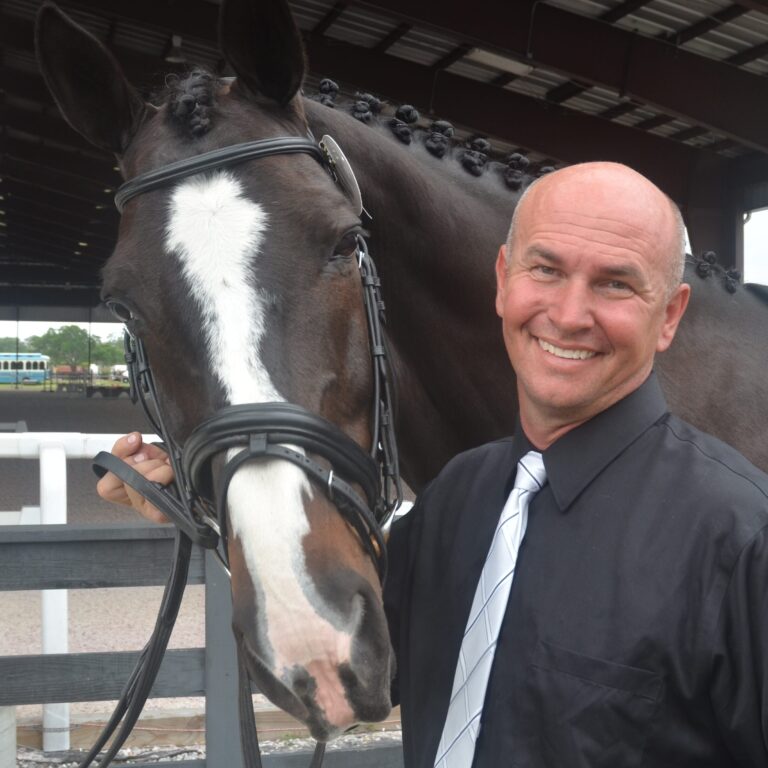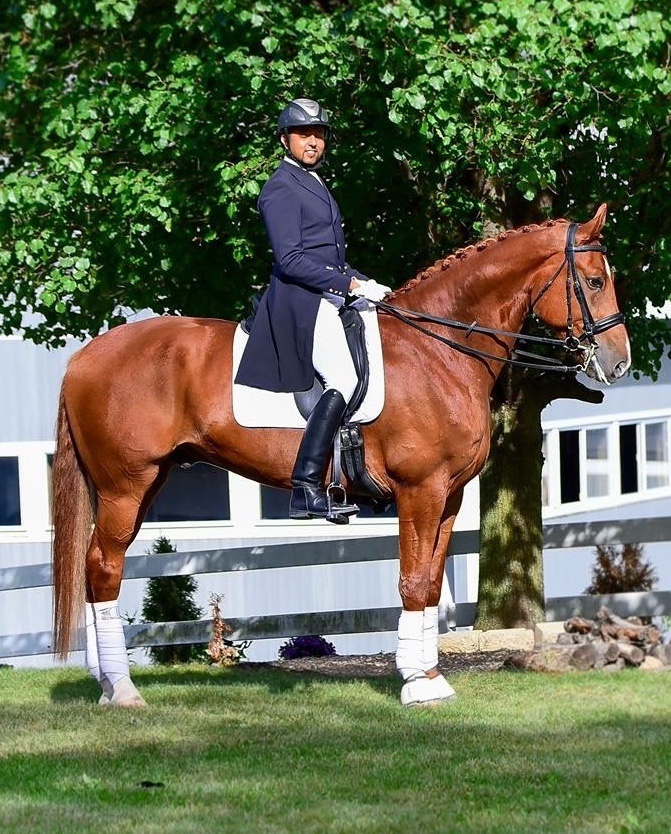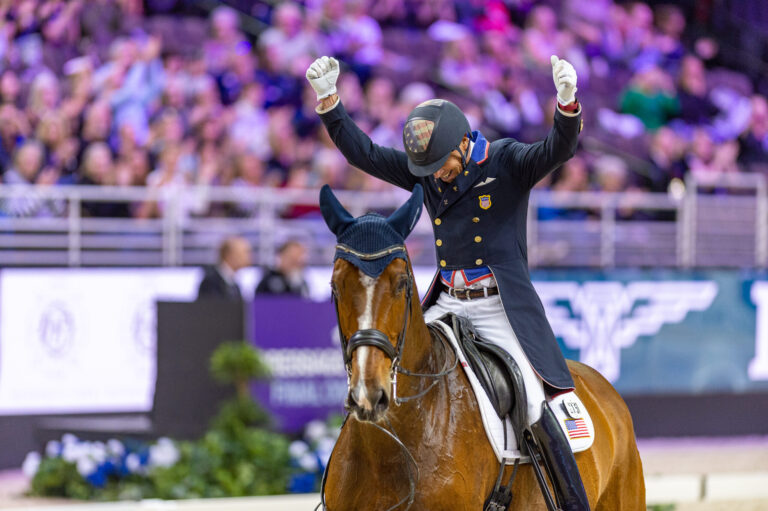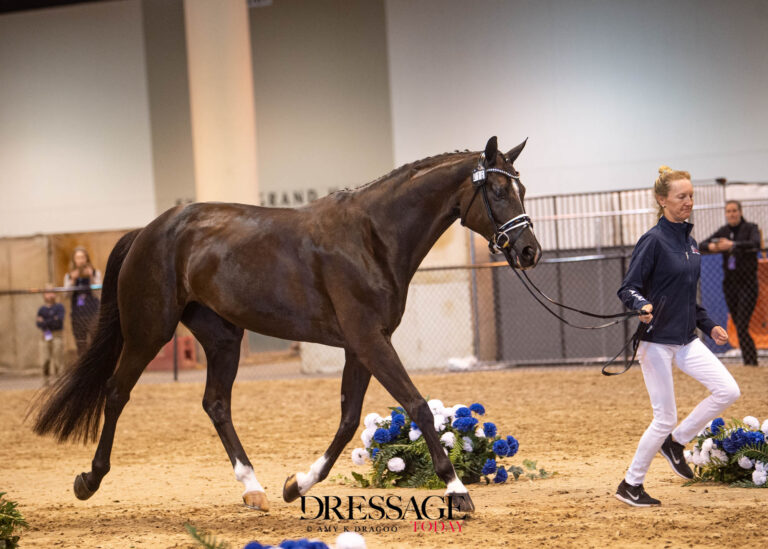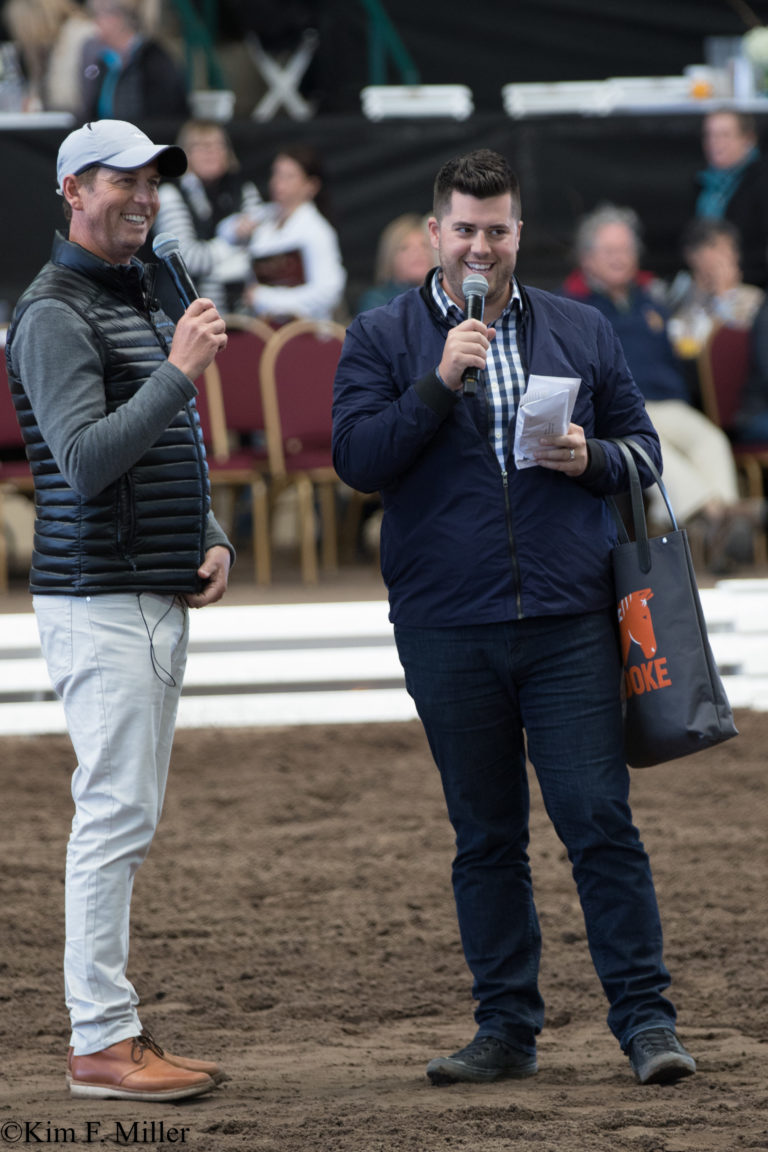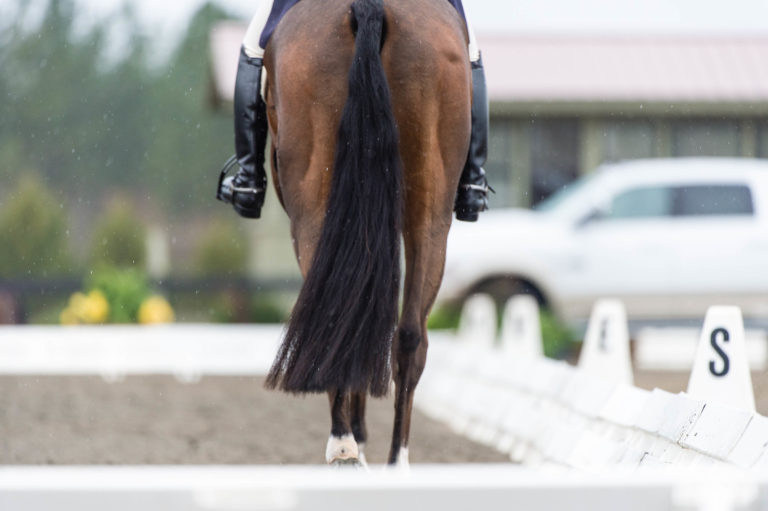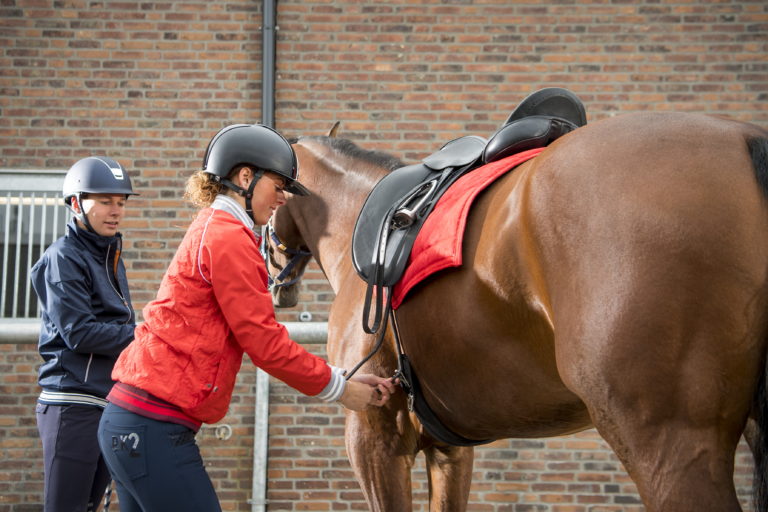A typical Irish kid, Olympian Judy Reynolds grew up riding ponies and doing all of the adrenaline-pumping equestrian sports like jumping, Pony Club and foxhunting. But it was in the dressage ring that Judy found her talents best put to use, and at a young age she had already won every dressage championship in her small island country. With contacts in Germany, she headed to the mainland of Europe in 2002 at age 21 to test herself against a stiffer caliber of competition. Fifteen years later, she’s still there, and her influence on dressage in Ireland has seen the sport grow leaps and bounds.
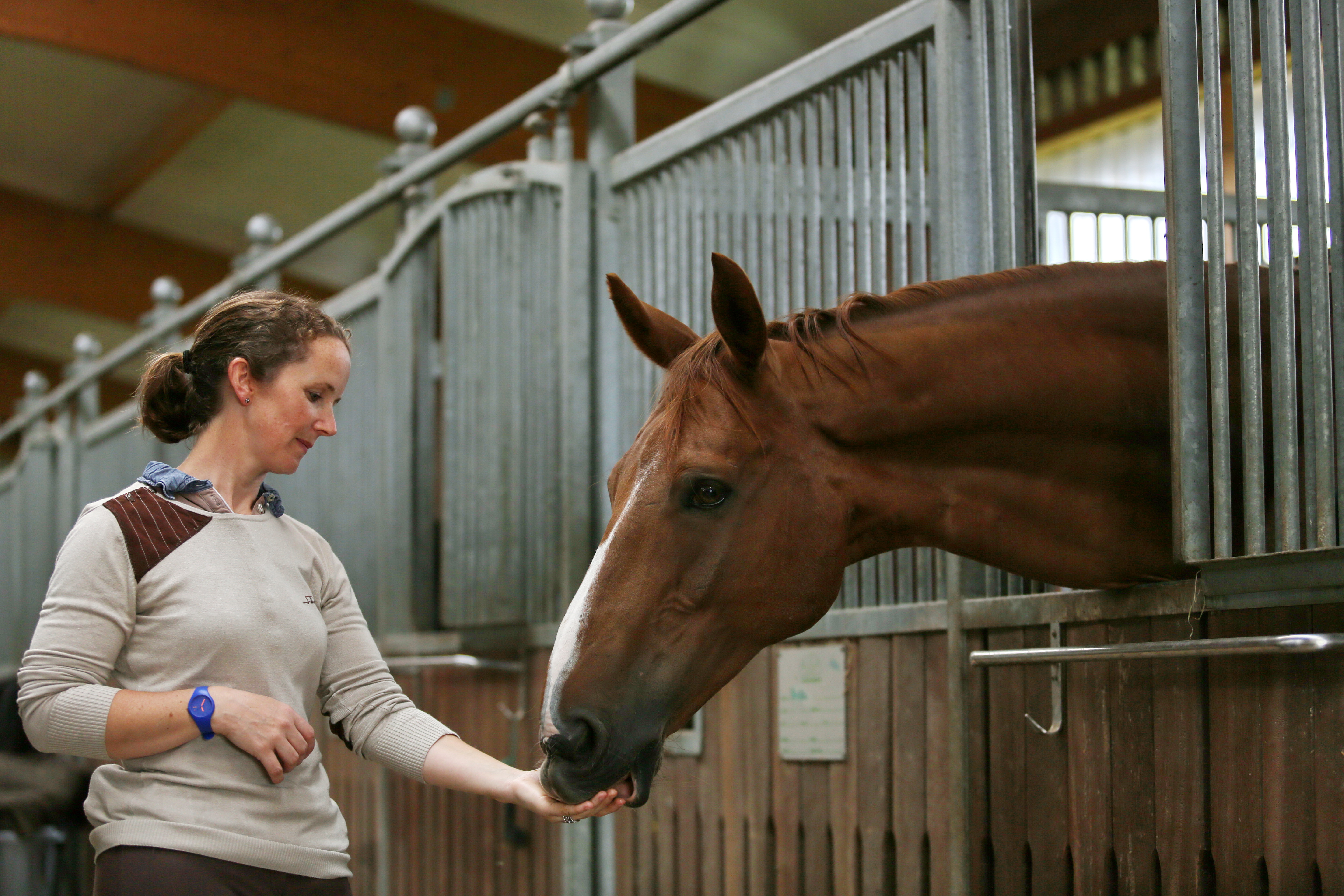
In 2016 Judy and her horse Vancouver K (or “JP”) represented Ireland at the Olympic Games in Rio de Janeiro, Brazil, where they finished 18th individually. At the end of the year they traveled to the United States, where they won the Central Park CDI in New York City, then won the Grand Prix at Dressage at Devon a week later. They returned to the U.S. for the World Cup Final in Omaha in 2017 to place fourth overall. Judy and JP have also competed at the World Equestrian Games and the European Championships. She has competed four horses at the championship level: JP, Remember, Burgfräulein and Rathbawn Valet.
Having seen Judy and JP compete in the U.S., I wanted to know more about their story. I was in Germany last summer, so a week after the CHIO Aachen, where the pair competed in the Grand Prix, I drove to her farm in the town of Dorsten to see what a day in the life of her busy riding and training business looks like. I was staying a little over an hour from her farm and was excited for the opportunity to visit an English-speaking dressage professional in Germany since my German skills are somewhat limited.
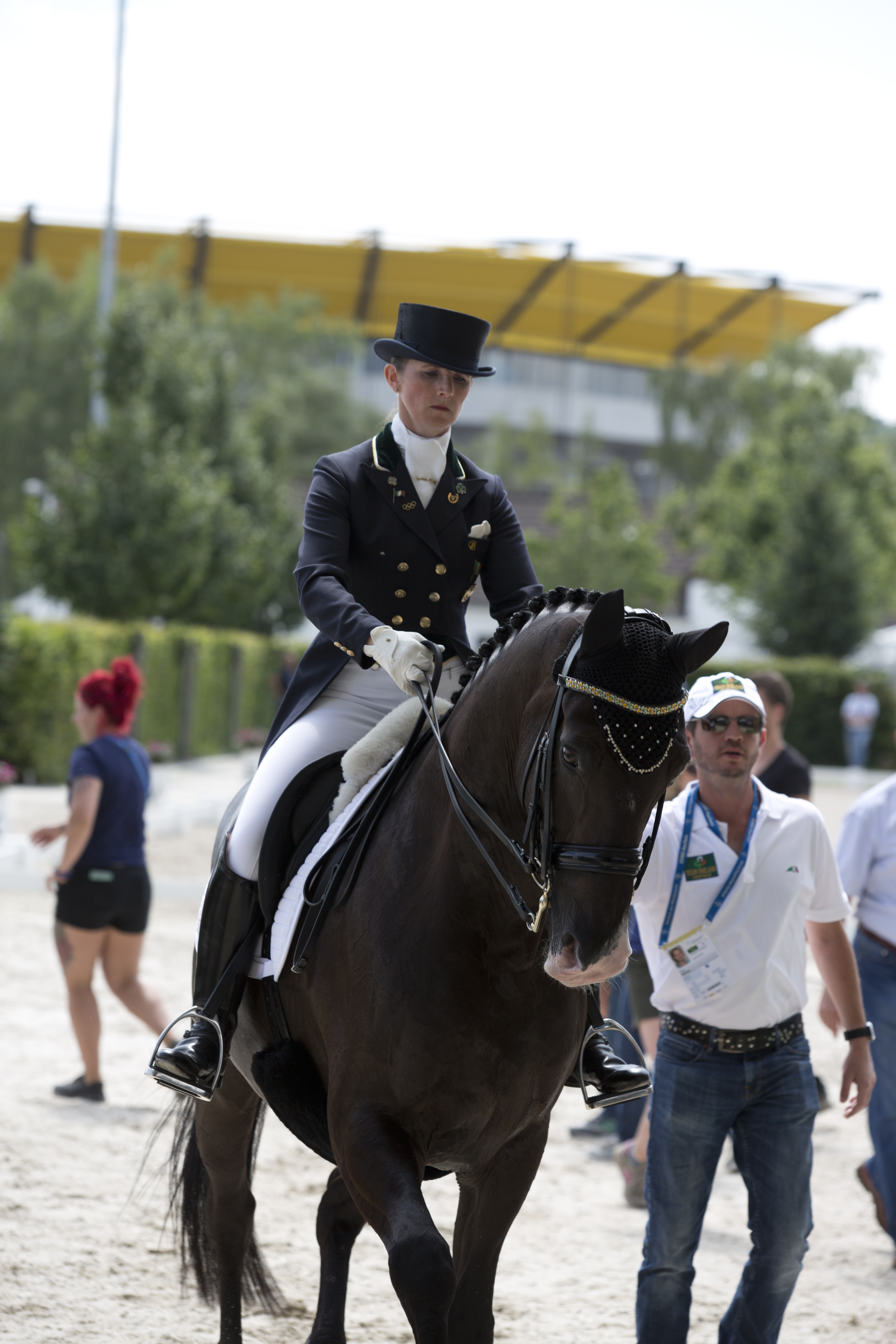
After cruising along the A2 Autobahn for an hour or so I headed north up the A31 for another 10 or 15 minutes. Following the navigation system on my rental car, I exited into farmland and then drove through the town of Dorsten, where traditional architecture and small shops mixed with modern amenities like a department store, cinema and appliance shop.
I drove over a bridge and continued down a little lane through a suburban neighborhood, questioning whether I should turn around since it didn’t look like the road could possibly lead to a horse farm. But a green sign for Gut Hohenkamp, Judy’s base of operations, appeared at an intersection with a bike path, so I persisted. As I proceeded down the narrow lane through a wooded area, the houses grew farther apart and eventually a massive, modern metal gate with giant horse heads appeared and I knew I was in the right place. As I went through the gates and around a bend, the landscape opened up to reveal a well-kept, modern equestrian complex. There was parking for cars and bicycles, and after I parked my car I wandered through the door to the viewing room.
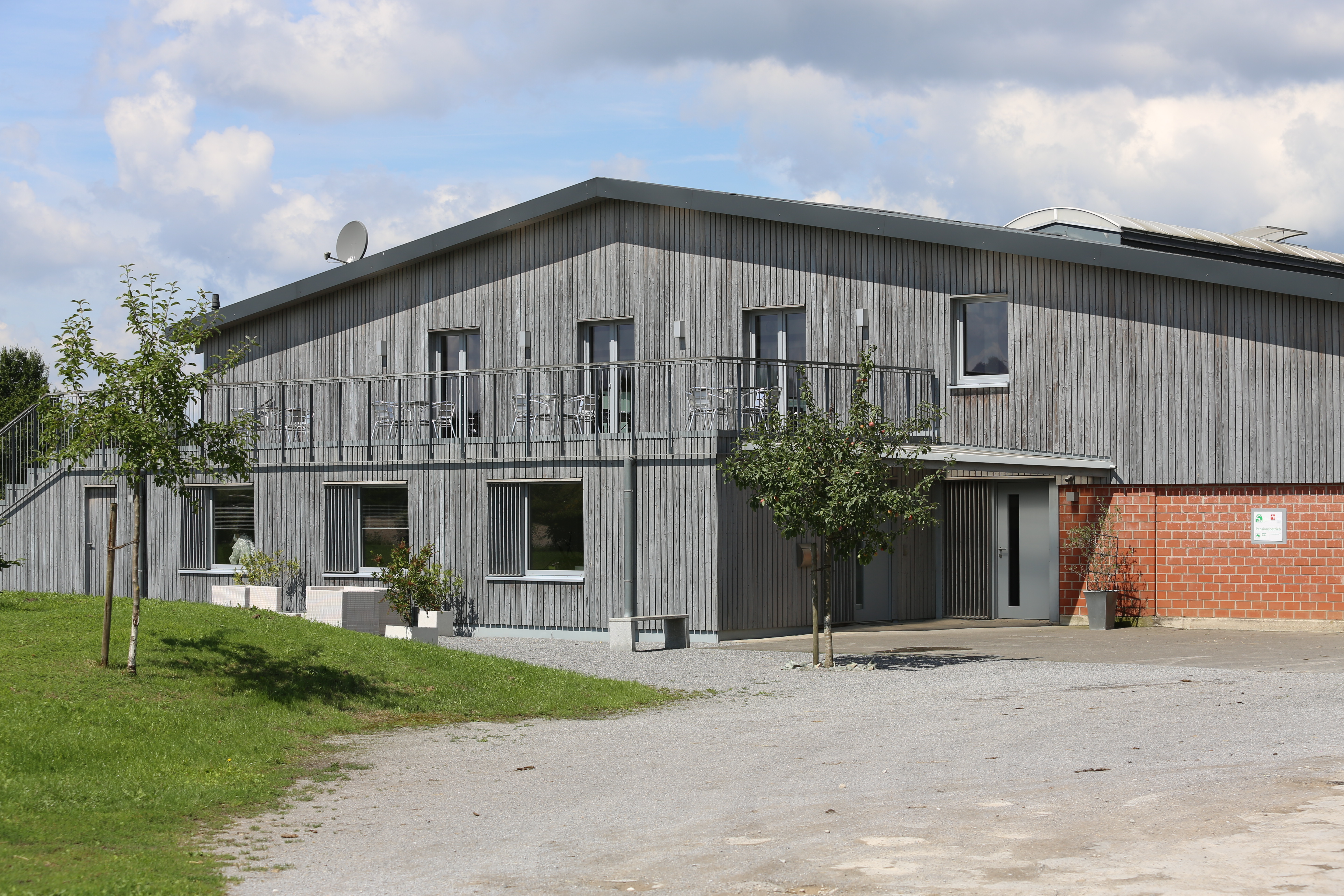
I found Judy in the indoor, finishing a ride on a young horse. She sent me around the back of the indoor to her stable block, where she rents stabling for her own horses as well as students’ horses and horses in training. She said that there are 90 stalls divided into four blocks. At the moment she has about 15 horses of her own and in training.
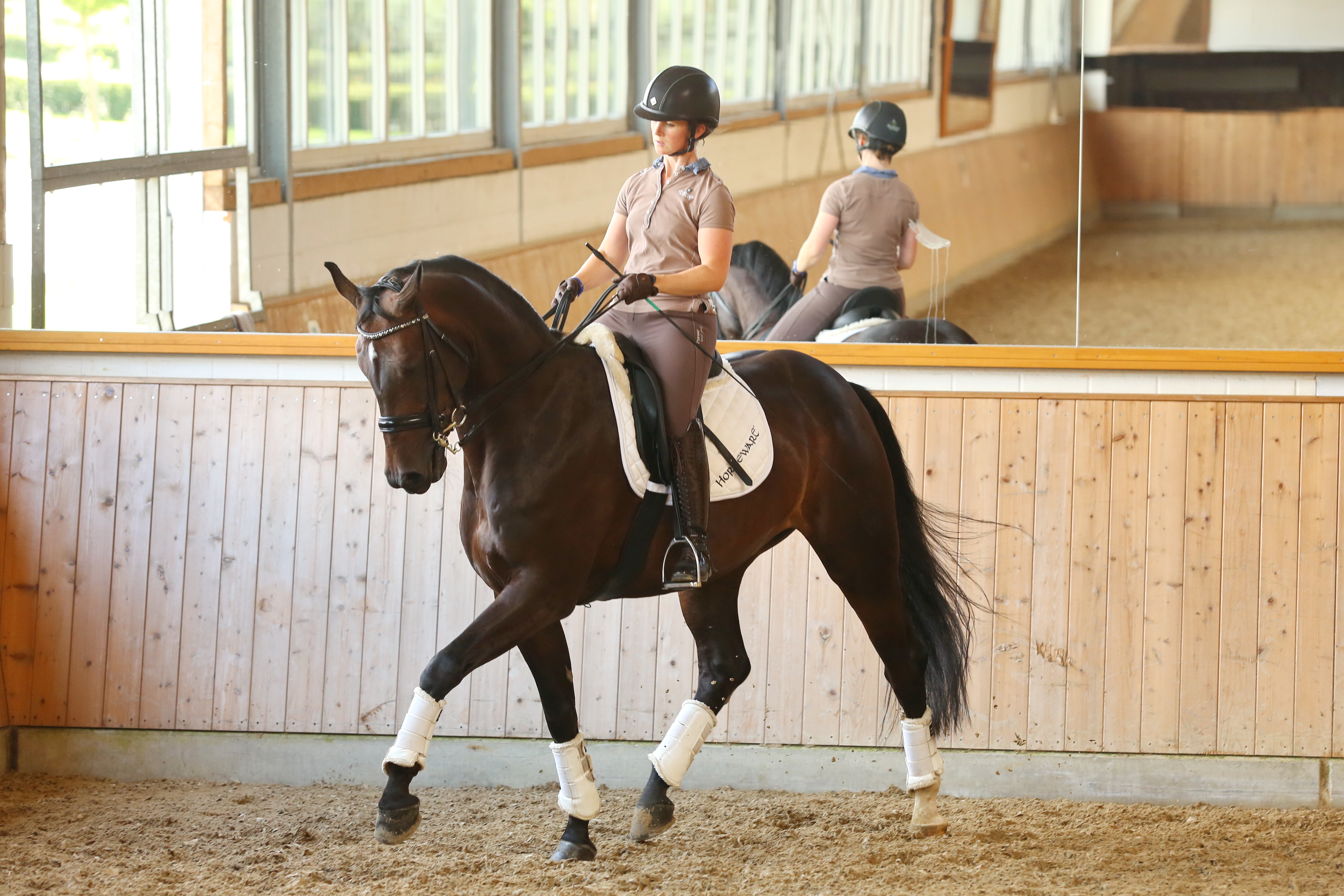
Before I headed outside, I noticed a vending machine. On closer inspection, it contained products for horse care: fly spray, wound ointment, bandages and so on—such a great idea for last-minute or emergency needs.
The facilities also feature two 20-by- 60 meter outdoor dressage courts, an all-weather jumping ring, all-weather gallops and a small outdoor jumping course that surprisingly features a couple of Normandy banks. Even by American standards there is ample turnout as well as some green space for hacking. The owner, Sabine Haag Molkenteller, described the property as an “island” because it’s surrounded by urban development and backs up to a wide canal. For local riders, it’s more of an oasis, a sanctuary for elite training.
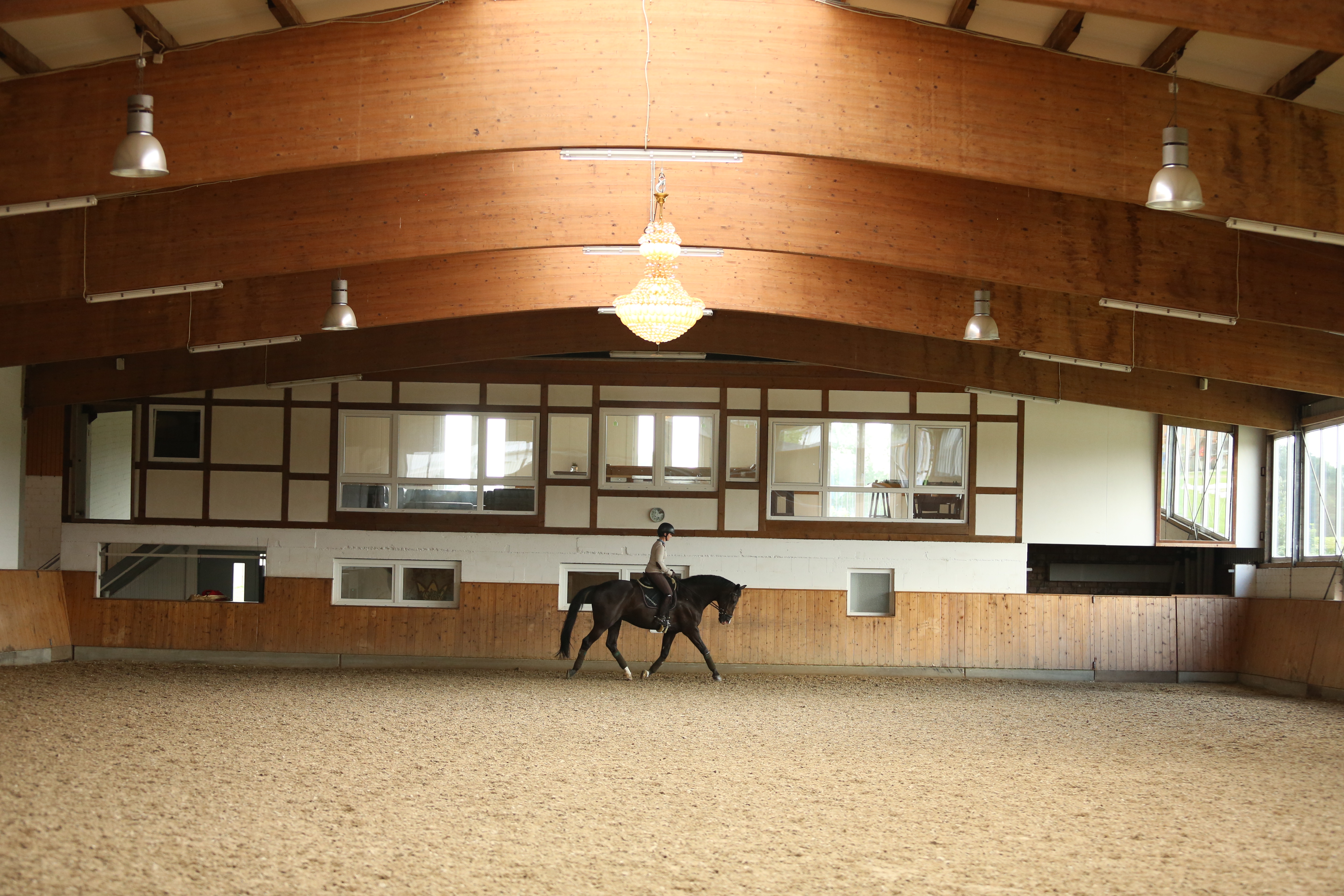
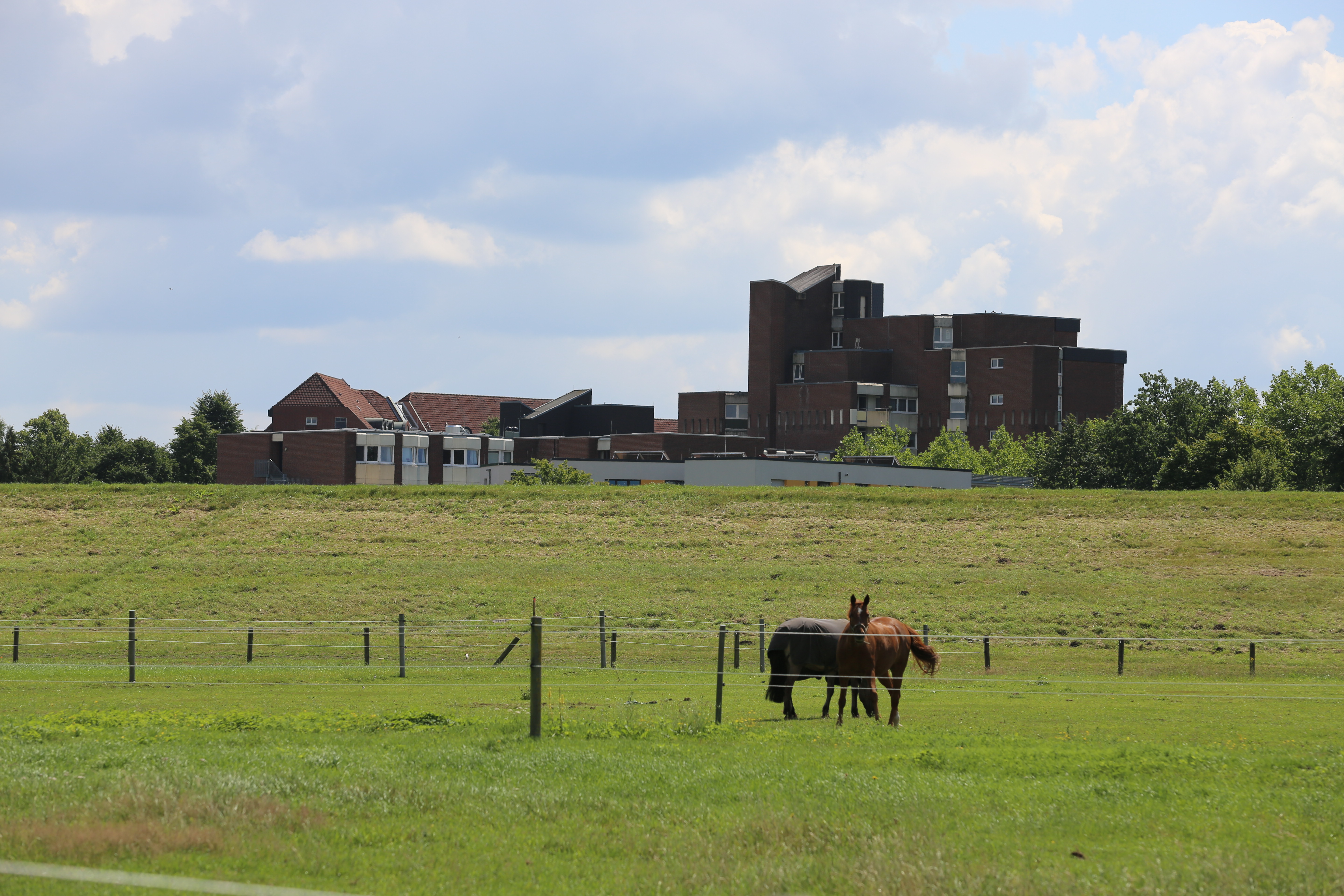
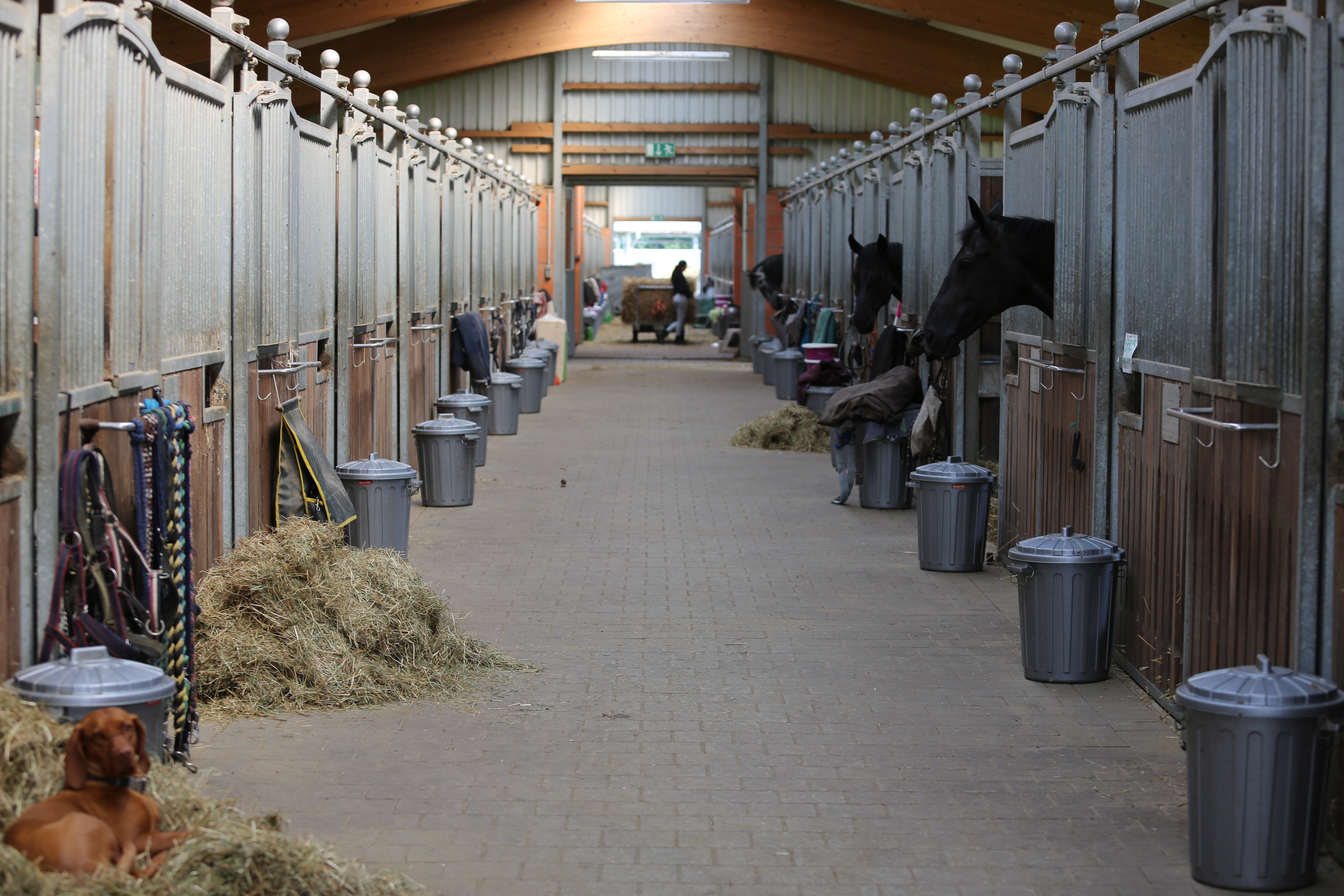
From Ireland to Germany
After dominating the Irish dressage scene, Judy left her native Ireland 15 years ago in search of tougher competition on the European continent. She has located her business at Gut Hohenkamp for the past three years.
They initially shared stables with Bertram Allen, the Irish show jumper, and in the beginning he had five horses, but within a year and a half he had 25 horses. When Judy first came over she trained with Anna Merveldt, Irish dressage Olympian, and lived in Bavaria because that’s where Anna was based.
“I trained with Anna for four years and then she moved to Italy and I never wanted to make the move, so I stayed in Bavaria. I trained with Johann Hinnemann because Anna had always trained with him. When I was in Bavaria on my own for the year, I’d travel up to him. It was about a six-hour drive and I did that every four to six weeks. So it used to be a 600-km drive, and I’d stay for four or five days, but at one point it was just too much.” Judy decided to relocate to Johann’s barn and was there for about three and a half years. Around the time of the London Olympics, she tried to qualify but didn’t succeed and needed a change of scenery.
“I’d already been working a little for Jessica Kürten, the [Irish Olympian who married a German and is based in Germany] show jumper rider. She started to train a guy in Paris, Eduard de Rothschild, and I figured why not and went over there for a year. It was a totally different scene and very interesting. I’d done loads of jumping in Ireland, up to 1.20 meters or 1.30 meters maybe, and it was really fun jumping with Jessica because whatever I would teach her in dressage, she would translate into tighter turns on a course or correcting a horse who was drifting through a corner or something like that. We would watch videos together and work on the horses.”
As much fun as it was working in France, though, it wasn’t getting Judy closer to accomplishing her goals, so she and her husband, Patrick Heavey, relocated back to Germany and started their own business.
“I rented half the yard from Bertram. It was really great to be in the stables with him, he’s very talented. I was training him and his horses and we had a lot of fun together, but then he had too many horses and needed the stables for himself. Now that we are located in Dorsten, he’s only 15 minutes away and Johann is another 15 minutes away. If I’m having a problem with a horse I ring him up and say, OK, I’m coming over. It’s really easy that way.”
Judy’s family owns a transport company called Reynolds Logistics in Ireland, and she previously worked for the family business. She’s driven the trucks herself, delivering petrol (or gasoline), so hauling horses around now is no big deal by comparison.
Cultural Adaptation
Judy said that she took a few German classes in school, but the language didn’t come naturally to her. Initially she had planned to stay in Germany for only about six months, so she didn’t put much effort into learning the language since she was working for an Irish person anyway. Halfway through her second year in Germany she figured she should spend more time learning German and today she has proficient language skills to teach lessons in German and cope with daily situations where she needs to speak the language.
“When you listen to the radio in the car it kind of goes in. For the first couple of years I went around with a dictionary, and if I had a meeting and would have to speak to somebody, I’d sit there in the car and look up all the important words beforehand. Eventually it stuck. Patrick would have a wider vocabulary than I do, though.”
Judy’s husband Patrick would rather play golf than ride a horse, but he manages the business side of the dressage operation and is an integral part of life at the barn. As we were chatting, he helped groom and tack JP for a ride and accompanied Judy on the walk to the indoor arena. They chatted about her schedule and he reminded her about a few details in the horses’ schedule before he departed for an afternoon on the links.
“In Ireland dressage isn’t so big,” he told me. “It’s catching on now, but when Judy was young she did the best that she could there—she quickly went from the top of the table in Ireland to the bottom of the table in Germany, but it was good for her. It challenged her to do better.”
He rides for fun now and then but competition isn’t his cup of tea. “But I love it and I’ve been watching Judy long enough that I’m good eyes from the ground now. I warm Judy up at most of the competitions now. She had Johann at Aachen but I’m there at most of the shows. It’s an easy job. All I have to say is, ‘that’s really good,’” he said with a wink.
A Focus on Horsemanship
Judy works with 14 to 15 horses a day. She has a mix of her own horses, which she rides herself, horses in for training and competing and a few she trains with the horse’s rider. Students also come in for regular lessons.
Before he helped tack up JP, Patrick led a pretty bay mare who is competing at the “S” (Prix St. Georges equivalent) level out behind the stables to graze. When Judy and I wandered out after them, he led the mare over to a little pool that they refer to as the “horse spa,” because it’s good for soaking legs, and she splashed and played in the water. Nearby was a deep pool brimming with lily pads and frogs splashing into the water.
All of the horses get turnout time in the field every day. As much as they can, they go out in pairs. Patrick said that they try not to put them out on their own unless a horse has particular issues and can’t be out with others. Most days they also go on the walker for another 20 minutes, just to get them out of their stalls for a while.
“I don’t like them to be in the box too much, especially when they’re a bit hot. I think the field is great. It just helps them to chill a bit,” said Judy. Patrick agreed, “You can tell the horses are happy. We don’t have any mean horses and that’s important to us. They’re out of the box, they have fun every day and then they give that back.”
Heavy rains had fallen a couple days before I visited Gut Hohenkamp, so the outdoor arenas were not in use. Judy shared the large indoor arena with a couple of other riders schooling horses, and there was plenty of room for everyone to ride.
Judy typically rides in the mornings, sitting on six to eight horses generally. All of the horses are walked before they come in, then she works them and in the afternoon she teaches. Most of their training is done at home, though she might take a young horse to Johann‘s to test the waters a bit before she takes them to a show.
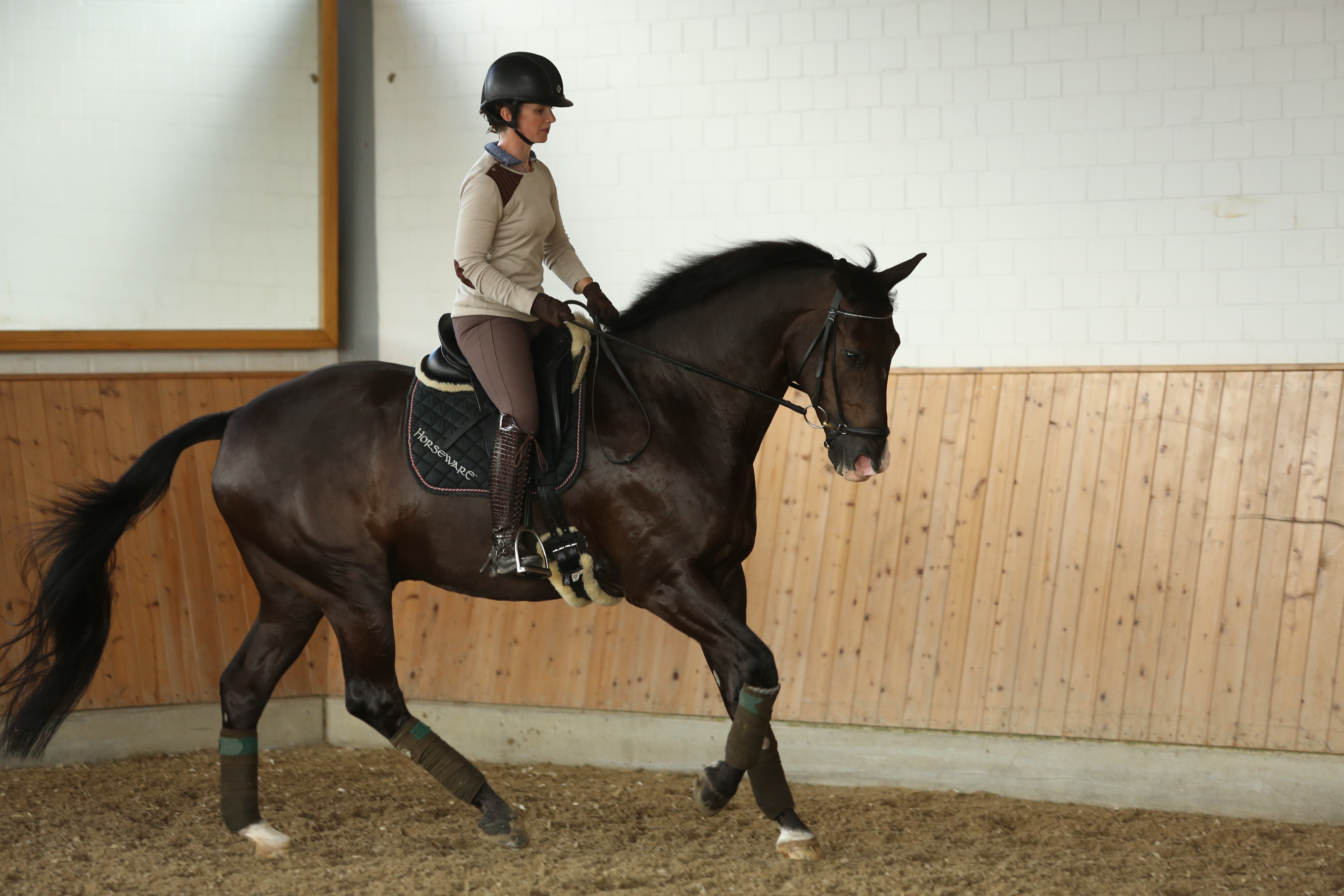
Judy tries keeping the horses’ training fun and interesting. Sometimes she still jumps JP, and she said when she put a video on Facebook it had a huge response. “People couldn’t believe I was jumping my Grand Prix dressage horse,” she said, “They were small jumps and grids, just to give him something different to do. I’d jump most of the horses here. My young horse Penny was bred to jump, but she is an incredible mover, so she will hopefully be a top dressage horse. I think it’s important for them all to have a bit of variety. We don’t have a lot of hacking out, but they go on gallops and once a week they’re longed. We don’t work them every day. I’d go crazy doing that.”
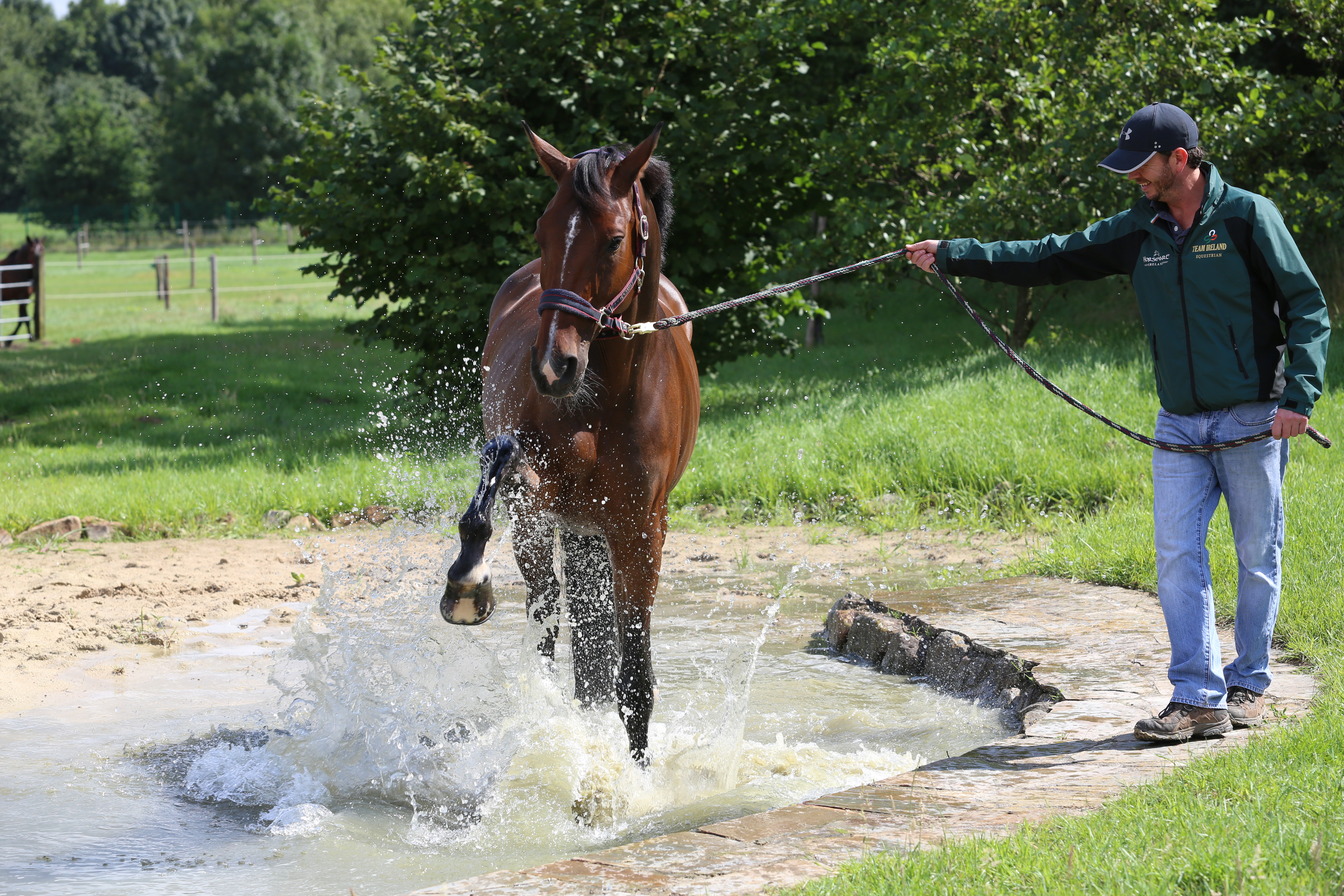
Giving Back to the Sport
As one of Ireland’s most successful dressage riders, Judy is also involved in promoting the sport at home, and said that her success seems to have inspired a younger generation of Irish riders to focus on dressage.
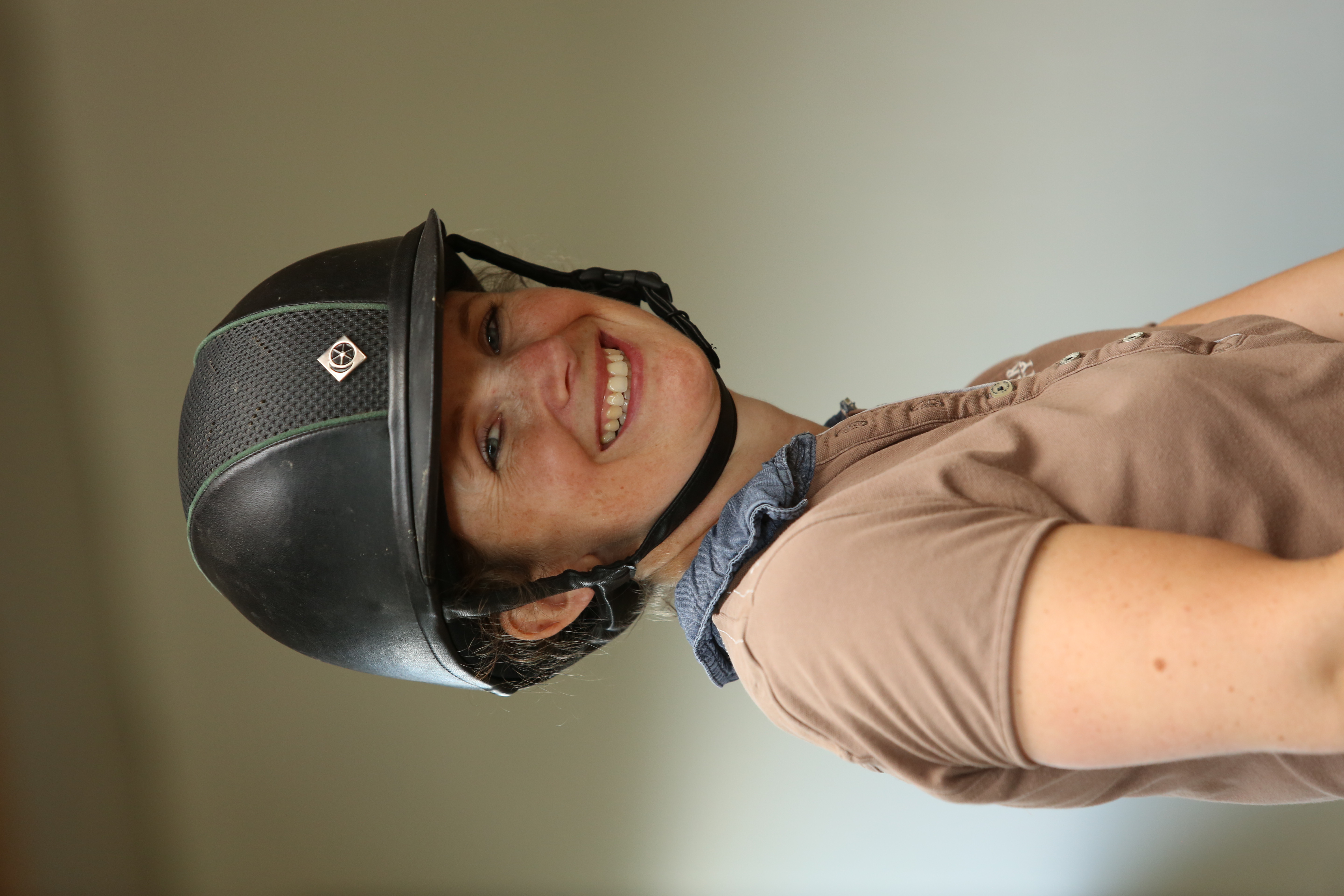
Her dad, Joe Reynolds, is the chairman of Dressage Ireland. Dressage is the fastest-growing equestrian sport in Ireland and Judy’s dad is heavily involved. He also takes a lot of photos and keeps her social media up to date. He comes from a business background and is bringing that expertise to Dressage Ireland, trying to set up pathways for the Juniors, Ponies and Amateurs. “It’s important to have those pathways, otherwise they get lost—and it’s helped. The past three years we’ve had a pony team at the Europeans every year,” said Judy. “When they move up to Juniors they’re a little more established. In my case, my first international competition was the European Championships and I was shocked with the difference. I hope it’ll be a little different for these kids.”
Last year Judy had a pony rider come over and train with her, and she finished best of the Irish at the European Pony Championships. Having an English-speaking trainer based in the heart of Germany is clearly a benefit for Irish riders who would like to experience training and competing in Germany without having the added challenge of the language barrier.
Judy’s parents have a cow and sheep farm in County Kildare, Ireland, but they’ve always had horses and ponies, too. There is an arena, so when Judy goes home she can train and teach there. Her dad convinced her to join an Olympic athletes committee, which consists of athletes from a variety of both summer and winter sports. In fact, the evening of our interview she was hopping on a plane to Dublin just for an overnight visit. It’s an easy flight to Dublin from Duesseldorf, but this was the fourth time she had been home that month. Typically she visits Ireland every few weeks to teach clinics at her family’s farm.
Despite her busy travel schedule, Judy had five horses competing at the national level when I visited. She and Patrick try to maintain part ownership of most of the horses. Judy’s main interest is competition, so they don’t want to have one sold out from under her. Some of the horses are there to be sold, but some of them they want to hang on to.
When I visited, JP was her only FEI horse, and since then, he sustained a minor injury that kept him from flying to New York to defend his title in 2017 at Central Park. Judy has two horses that she hopes will do the small tour next year. She also sold a small tour horse named Zigal the previous autumn to U.S. Young Rider Chase Shipka who competed at the NAJYRC last summer. Chase won individual silver and claimed gold in the Freestyle. “Chase is getting on fantastic with Zigal, and it’s nice to see the horse getting on with someone else. That’s important,” she said.
Though she used to spend three months each winter in Ireland and give her horses a break, Judy found that too much time off meant that she had to spend a couple of months just bringing them back into fitness. She believes that it’s important to let the horses down a little every now and then, so she eases off their work schedule if she feels they need a break or after a couple of successful shows. She keeps hacking out, doing some light flat work to keep muscles toned while giving them a physical and mental break from the stress of training and competing. Judy pointed out that JP knows what he’s supposed to do at this point, and while he can still improve in the Grand Prix, she doesn’t need to drill him in the movements constantly. He’s now 15 years old and she hopes to keep him sound enough to potentially compete at the Tokyo Olympics in 2020. She has another horse competing at the “S” level who will also be a potential Olympic horse by that time.
After spending a day at Judy’s yard, it is obvious that she works hard and runs an impeccable business. She also has a great love for her horses and will put their welfare first. If her previous record is anything to judge by, she will be making sure that Ireland continues to be well represented on the dressage stage.


